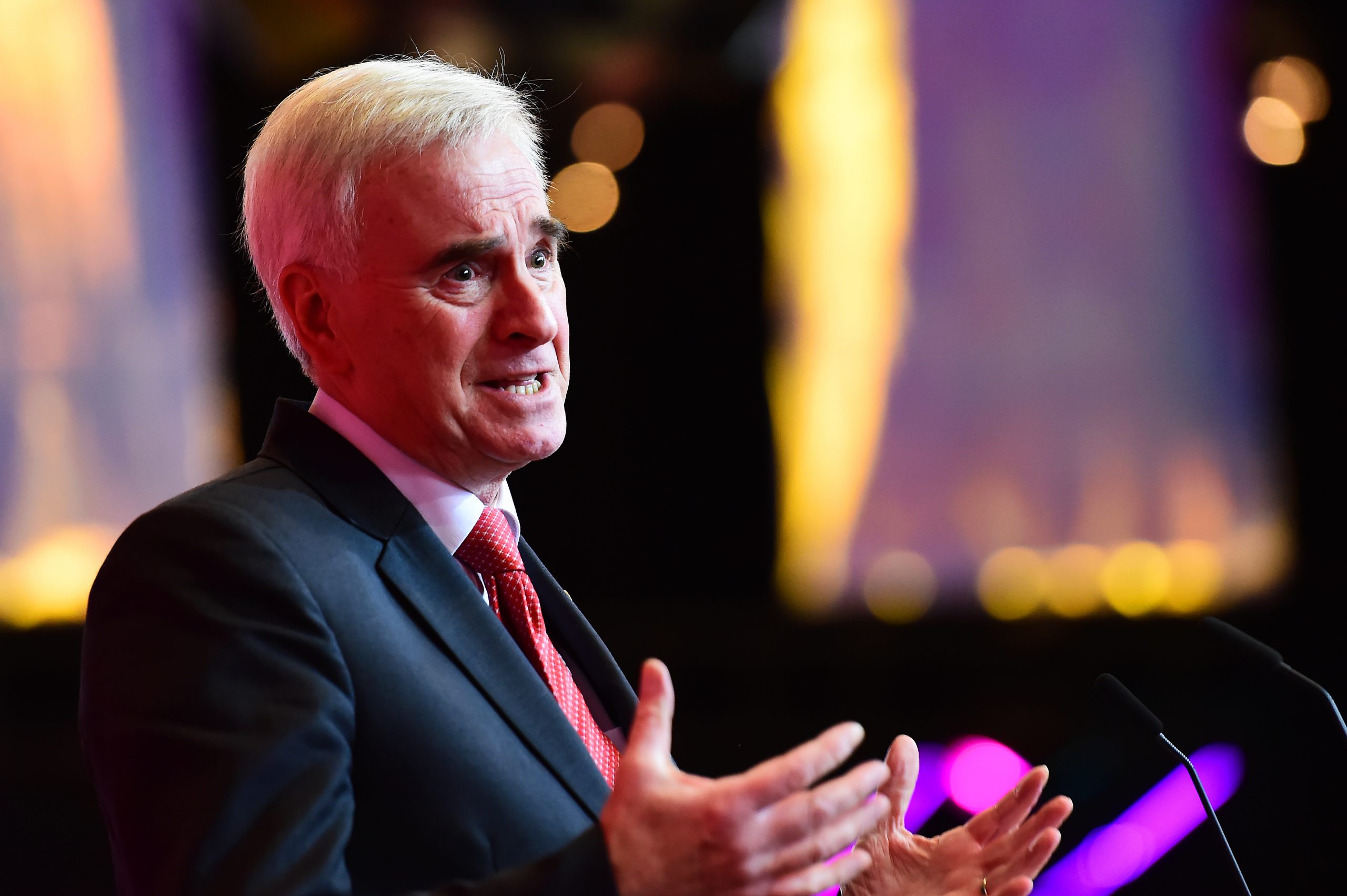
Rip it up and start again? Both Sajid Javid and John McDonnell have used their first big speeches of the general election campaign to rewrite their rules on public spending – kicking off a bidding war on infrastructure investment.
Both the Chancellor and his Labour shadow have ripped up their commitments to keep the national debt falling over the course of the next parliament (though both still hope to run a day-to-day surplus when it comes to government spending). Instead, speaking in Manchester, Javid said only that he would aim to keep it flat or falling if interest rates allowed – quite the departure from the once sacrosanct Tory commitment to ensure debt fell year-on-year.
That opens the door to a new programme of borrowing to invest that by Conservative standards looks like a splurge: Javid pledged £22bn in new public sector spending a year. But McDonnell, as one would expect, went further. Not only are his plans for new investment on schools, hospitals and other public sector projects more ambitious – to the tune of £55bn a year, double the current level – but his new fiscal rules give him more leeway to spend big too.
Unlike Javid, the shadow chancellor won’t count investment on infrastructure towards his spending targets or cap new infrastructure spending, and will instead aim not to keep debt falling but to increase the “net worth” of the public sector – an accounting tweak that would judge borrowing for investment on the value of the asset it was spent on.
The Institute for Fiscal Studies isn’t wild about either plan, and has cautioned both parties over the speed and scale of their spending programmes – which, it says, would mean the highest level of investment since the 1970s. But, predictably, it is McDonnell about whom they are most worried. “There is next to no chance that investment spending could sensibly be increased by more than £50bn a year within a year or two,” writes IFS director Paul Johnson in this morning’s Times.
What does it tell us about the campaign to come? Well, though it might appear that the Tories have abandoned their old mantra of fiscal rectitude, that isn’t quite true: Javid has committed to balancing the budget within three years, which precludes the sort of huge tax cuts and spending increases on day-to-day policy like social care promised in the Tory leadership race. So the Conservatives will hope its new approach on the economy allows candidates to ride two horses at once: they can promise more investment in the public sector, but still have a stick with which to bash Labour’s profligacy and point to their own prudence.
For McDonnell, meanwhile, the reverse is true. The shadow chancellor has always believed that he could outbid the Conservatives no matter how radically they changed their attitude to public spending – and so indeed he has. And, with the Tories having conceded the argument that borrowing to invest is acceptable, McDonnell is also convinced that their attacks on Labour’s fiscal policy won’t sting anywhere near as much as they used to – if at all.
His thinking speaks to the big gamble made by both of the main parties at this election. The Tories are still framing their spending pledges in terms of economic competence – an area where, in normal times, their polling lead would as good as guarantee them victory. Labour, emboldened by its performance 2017, is taking a punt on the public seeing it differently. With Brexit looming in the background, however, it may well find that hopes and fears on the economy aren’t the main thing driving voter behaviour on 12 December.






